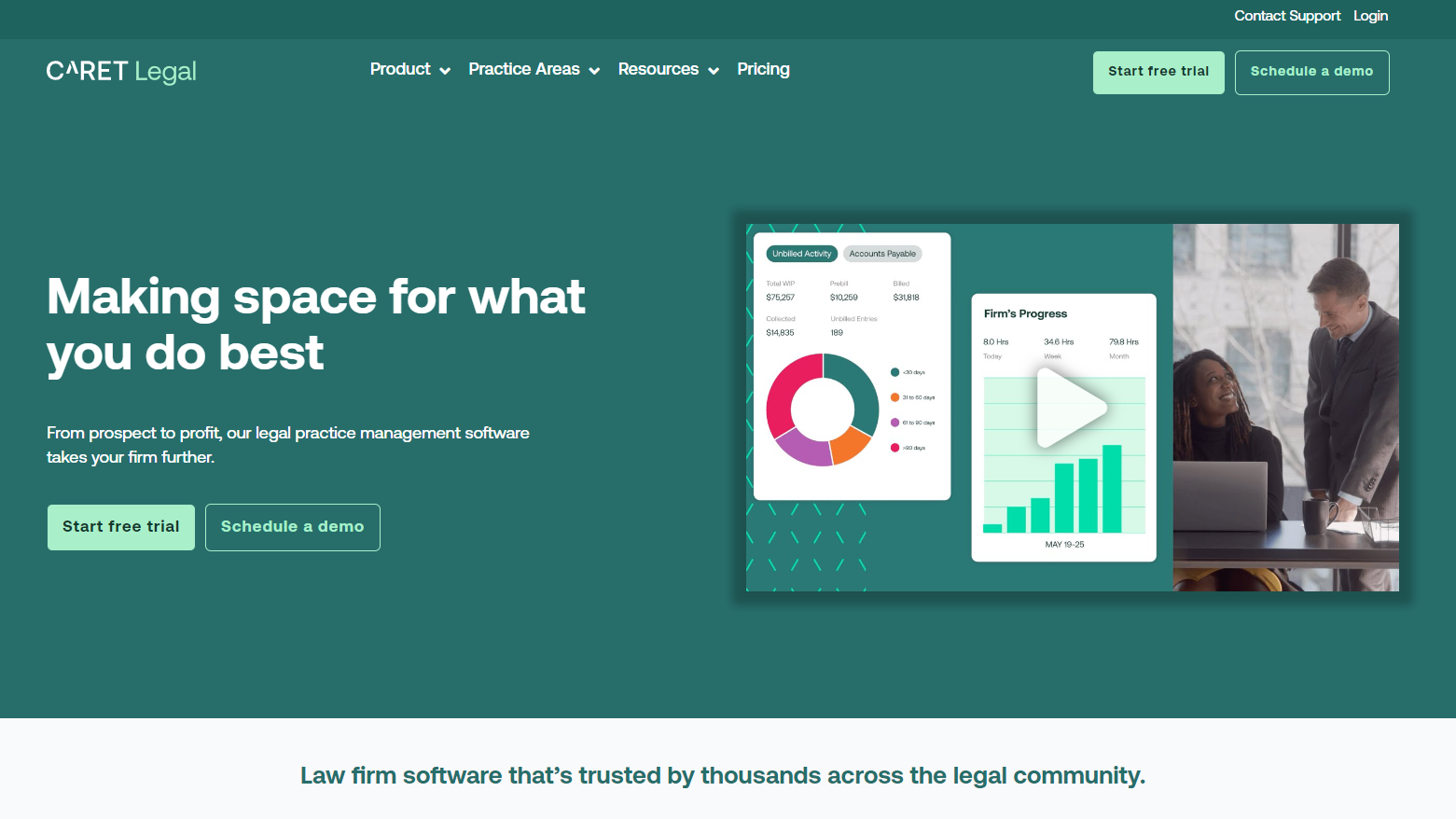The chief executive officer of law practice management company CARET left that role on her accord and remains a member of the company’s board of directors, the company says.
Earlier this week, Law.com reported that Keri Gohman, the former Bain Capital Ventures partner who had been CARET’s CEO since 2022, was laid off, along with two other executives, Joanna Trimble, who had been CARET’s chief revenue officer and president of HotDocs, and Anne McNulty, who has been vice president of GTM operations and customer success.
Law.com subsequently updated its story to reflect that CARET said Gohman left of her own accord and that Trimble left as part of CARET’s sale in June of the HotDocs document automation product to Mitratech.
A source with knowledge of the company confirmed that updated version to me, saying that Gohman no longer wanted to remain in her management role and saw the sale of HotDocs as a transition point for the company and an appropriate opportunity for her to step down as CEO.
Gohman remains with the company as both an advisor and a board member, the source said, and she remains a “valued and trusted” part of the company.
If the separation had been involuntary, the source said, Gohman would not have been allowed to remain on the board, with full access to board documents and full ability to vote on board matters.
“The fact that she’s on the board, on committees, continuing to access all of the board materials and cast votes, that would strongly suggest, as is the case, that [the company’s owners] really value her leadership,” the source said.
With regard to Trimble, the source said that she, as president of HotDocs, left CARET as part of the HotDocs sale to Mitratech.
“When you sell a division of the company, the people who lead that [division] are obviously going to leave,” the source said. “And then, whether they decide to stay under new ownership or seek something else is obviously up to them and the new owners.”
The source I spoke to was unable to address the departure of the third executive, Anne McNulty. Lisa Hasen, CARET’s vice president of marketing, declined to comment on McNulty’s departure. McNulty’s LinkedIn profile shows that she is now SVP of customer success at DeepJudge.
Focusing on Core Products
CARET is the 2023 rebranded name of the company formerly known as AbacusNext, which was originally founded in 1983 and is among the oldest legal technology companies still in business. In March 2021, it was acquired by Thomas H. Lee Partners, a private equity firm that invests in growth companies.
These three departures all coincided with the sale of HotDocs, and Hasen said there were some other departures at that time, but all by people whose decision to leave was there own, even if possibly prodded by the sale.
In the wake of Gohman’s departure, CARET has named Mark Schatz as interim CEO, while the company conducts a search for a permanent CEO. Until June, Schatz was CEO of Stored Value Solutions, a provider of gift cards and stored-value products.
Hasen told me that CARET’s decision to sell off HotDocs was motivated by its desire to focus more on its core law practice management products and double down on what had always been the company’s strength.
While HotDocs is an “amazing product” for law firms, she said, it also has customers in many other industries, including banking, insurance and finance. Because CARET wanted to narrow its strategy to focus on small to mid-sized law firms, it identified Mitratech as the ideal company to take over HotDocs, because it serves customers across the same range of industries.
CARET retains the exclusive rights to HotDocs within the legal industry, Hasen said.
CARET owns three law practice management platforms: AbacusLaw, Amicus Attorney, and CARET Legal (formerly Zola). Its customers are small to midsized law firms of up to around 150 employees.
While CARET Legal is the company’s primary cloud platform, it plans to continue to support its legacy, on-premise products AbacusLaw and Amicus Attorney, Hasen said.
However, CARET Legal is now the company’s main focus, she said, “so that our heritage customers are able to make that transition if and when they’re ready to move to the cloud.”
 Robert Ambrogi Blog
Robert Ambrogi Blog